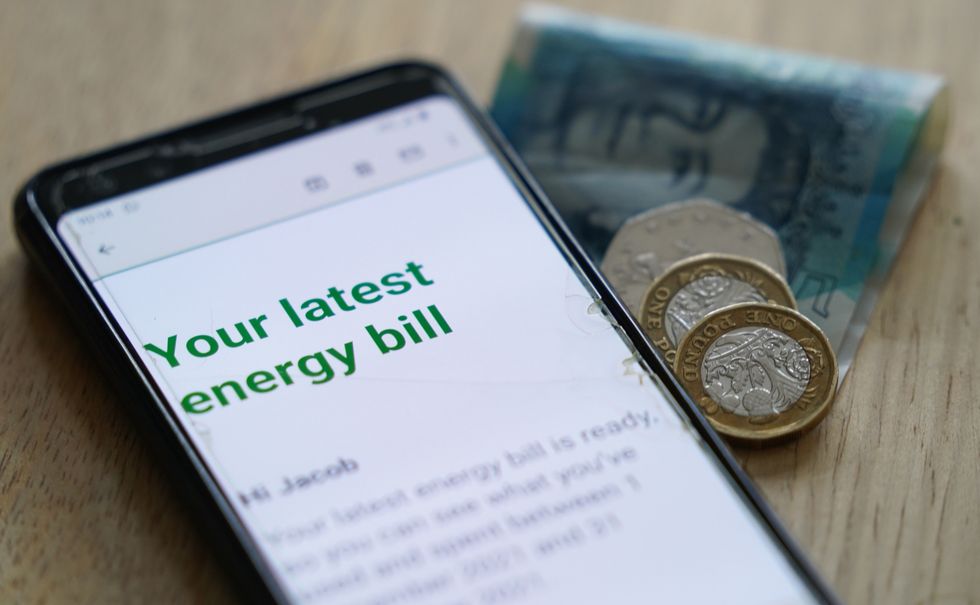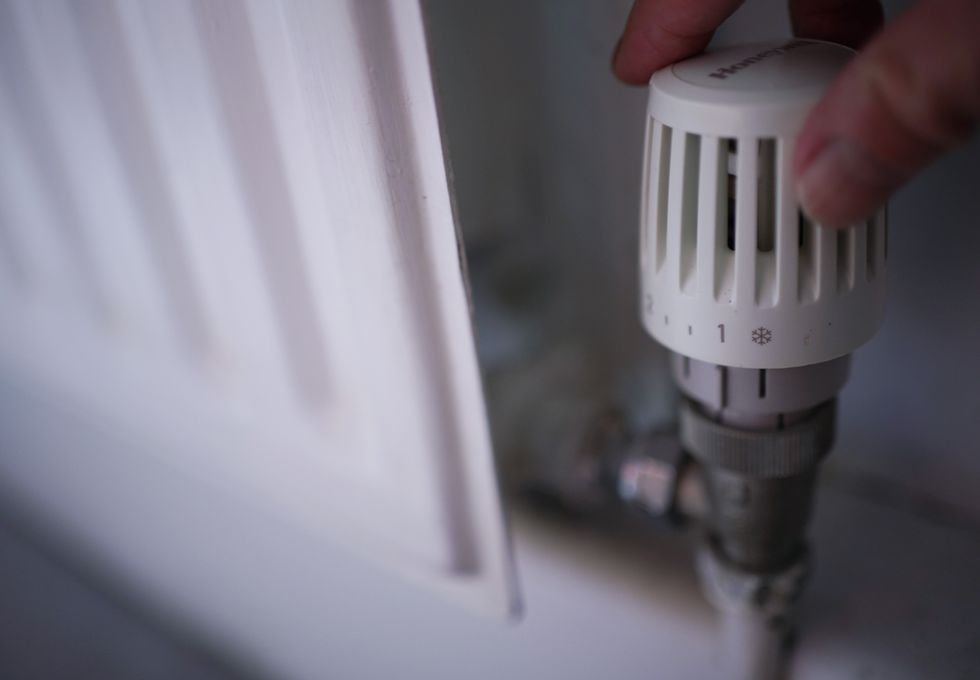More than three quarters of UK homes to be forced into fuel poverty as price cap comes into effect
New Ofgem energy price cap levels come into effect today, rising by 20 per cent to £4,279 per year for dual fuel for an average household
Don't Miss
Most Read
Trending on GB News
New Ofgem energy price cap levels come into effect today, rising by 20 per cent to £4,279 per year for dual fuel for an average household.
However, the Government's energy price guarantee scheme means typical bills will remain at £2,500 per year on average until April 2023.
But despite the scheme, research from the University of York has shown that more than three-quarters of households in the UK will be pushed into fuel poverty this month.
The report predicts that, even with the £400 fuel rebate for all from the government, 80.5% of households will be plunged into fuel poverty in Yorkshire and the Humber, 69% in London and 81% in Northern Ireland.
People like mum-of-two Kate Johnson, who already struggle with the cost of living, will be hit the hardest.
She lives with her two children and partner in York and spends an average £10 a day on a pre-paid fuel meter - the family’s only income is from universal credit and they struggle to heat their home.
Kate told GB News: “We’ve all got medical conditions – I’ve got fibromyalgia and arthritis and if I don’t have the heating on, it’s really painful to the point that I can’t barely walk.
“And then the kids have got additional needs so the heating is something that we definitely do need.
“The week before when it was really, really cold, we put [on the meter] just over £100 for the week as it was just too cold not to have it on during the day.”
Despite fuel bill support from the government, Kate is worried about the rising costs of energy and fears price hikes.
She said: “They’ve [the government] have made quite a few contributions to the fuel bills but it’s still a drop in the ocean, especially when you’ve got to have the heating on every day for medical reasons or controlling the mould in the house.
However, the Government's energy price guarantee scheme means typical bills will remain at £2,500 per year on average until April 2023.
Jacob King
“So I still think something should be done because at the end of the day they’re just going to keep increasing it [fuel bills] and it’s going to get to the point where people are going to have to choose whether to sit in the cold, or to feed your family, or to pay the rent.”
The ‘I am Reusable Community Food Bank’ down the road from Kate provides a lifeline for her family.
It’s run by John McGall, who feeds 100 people a day, seven days a week, from the shed outside his house.
And with fuel and food bills rising, John can only see the numbers of people he helps increasing.
“It used to be food or heating, now it’s rent or mortgage,” John told GB News.
“We’ve gone even further basically. So rent down here [in York] has basically gone up an average of £300 a month, so that’s £300 off your shopping bill, heating, everything, your fuel for your car to go to work.
“We do have a lot of people [coming to the food bank] who do work but they just don’t earn enough money anymore.
‘They’re catching their tail all the time and then a lot of people who are in debt, they’re catching up, so when they get their wage, they’re paying the debt they owe. It’s just a vicious circle.”
What the government have done to help with rising energy costs
Energy prices rose due to an increase in demand during the post-Covid reopening of economies coincided with Russia’s invasion of Ukraine and a subsequent squeeze on gas supplies into Europe.
Consequently, a steep rise in the wholesale price of gas has driven up the amount that energy providers pay for gas and electricity.
Ofgem introduced an ‘energy price cap’ in Britain in January 2019 following concerns that many people, particularly those who did not switch supplier to find cheaper deals, were paying too much for their energy. The cap sets the maximum amount that energy suppliers can charge for each unit of energy and the standing charge.The cap was due to go up again by 80% from 1 October 2022 for 24 million people in England, Scotland and Wales but the Government introduced the ‘energy price guarantee‘. This has now frozen typical energy bills at around £2,500 until April 2023.
The government also rolled out their Energy Bills Support Scheme to provide £400 off energy bills for households in Britain from October 2022. This automatic, non-repayable discount will be applied in six instalments between October 2022 and March 2023 to help households through winter.
New Ofgem energy price cap levels come into effect today, rising by 20 per cent to £4,279 per year for dual fuel for an average household.
Yui Mok










